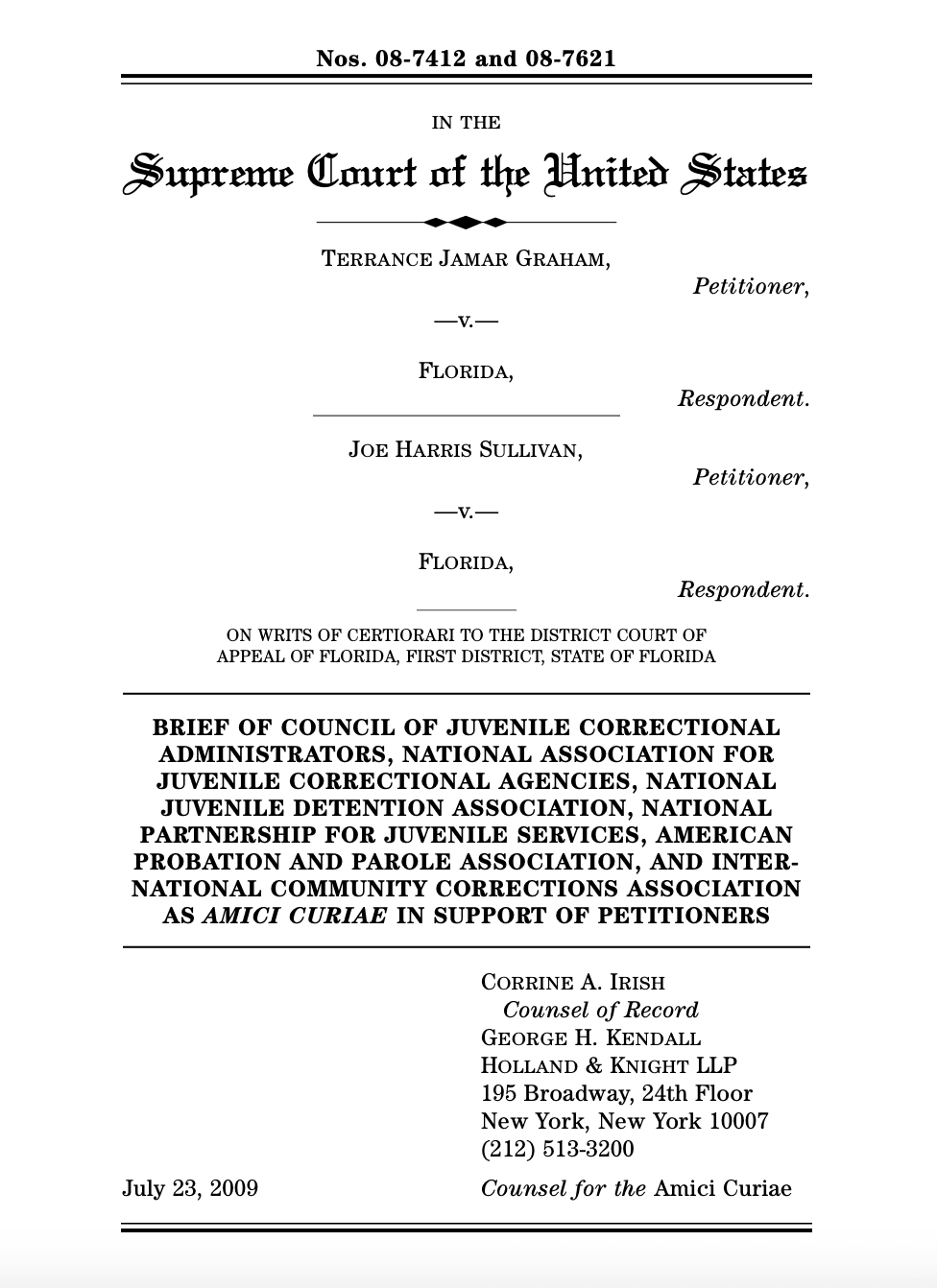
Summary of Argument
While we strongly believe that juveniles must be held accountable for their actions, condemning a juvenile to prison for the rest of his life at a point where his true character and potential cannot be accurately assessed is deeply troubling. In our professional capacities, we have experienced great successes with juveniles who others believed could not succeed. We believe the critical question for this Court is not “whether” but “when” – when is the proper and humane time to decide if a juvenile deserves to spend his life in prison. Empirical data, medical science and practical experience overwhelmingly shows that juvenile offenders are distinct from adult offenders and that these distinctions evince a unique potential for rehabilitation. We submit, therefore, that this determination can be made only in a post adolescence review of the development and treatment progress of a juvenile offender.
Open Amicus Brief as PDF